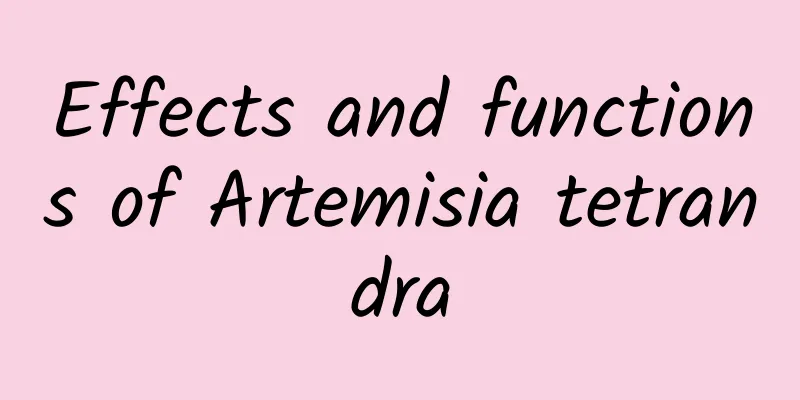The efficacy and function of green lotus

|
Traditional Chinese medicine has always been the best choice for many people to treat diseases. It is very helpful in treating diseases and you can rest assured when choosing it. Today we will introduce a Chinese medicinal material, Qingjiaolian. 【English Name】 different-leaved Arisaema 【Alias】 Iron lampstand [Source] Medicinal material source: The rhizome of Arisaema mirabilis, a plant of the Araceae family. [Original form] Arisaema mirabilis, perennial herb. The rhizome is cylindrical, 5-6cm long. Scale leaves linear-lanceolate, acute. There are 2 leaves, with petioles 30-90cm long, sheathed to the middle, variegated, and obliquely truncated at the sheath part; the leaf blade is bird-foot-divided, with 5-7 lobes, elliptic-lanceolate, caudate-acuminate, broadly cuneate at the base, green on the surface, and pink-green on the back; the middle lobe has a 2.5-5cm long petiole, 20-29cm long including the tip, and 7-12cm wide; the lateral lobes gradually become smaller toward the sides, and the bases of the outermost 2 are more or less united. Inflorescence stalk is variegated and shorter than petiole; spathe tube is cylindrical, variegated, 5-6cm long, 1-2cm thick, with throat slightly spread out, not curled outward; eaves are circular-lanceolate, variegated purple near the edge. The spadix is unisexual; the male inflorescence is 2.5 cm long and 6 mm thick; the appendages are short-stalked, thickened at the base, nearly truncated, tapering upwards, erect, extending out of the throat, and sometimes spirally curled at the apex; the male flowers have short stalks and 3 stamens; the female inflorescence is conical, and the appendages are the same as the male inflorescence; the female flowers are dense, the ovary is obovate, the apex is truncated and quadrilateral, and the stigma is sessile and disc-shaped. The berries have seeds3. Seeds obovate, 5 mm long. The flowering period is September and the fruiting period is November. [Habitat distribution] Ecological environment: Growing in hillside shrubs at an altitude of 880-3400m. 【Nature and flavor】 Bitter; cold; toxic 【Meridian】 Heart meridian 【Functions and indications】Detoxification; reducing swelling and relieving pain. Mainly used for unknown swelling, carbuncle, breast abscess, snake bite, rat bite, bee and scorpion sting 【Usage and Dosage】For external use: take appropriate amount and mash it for application. 【Note】 This product is toxic and is for external use only. There is generally a slight itching sensation after external application. If the itching is extremely unbearable, use should be discontinued. [Discussions by various scholars] "Xinhua Compendium of Materia Medica": Rhizome: bitter and numb, cold in nature, poisonous. It has the functions of dispersing toxins, reducing swelling, killing bacteria and reducing inflammation. Used for unknown swellings, mastitis, carbuncles, snake bites, bee and scorpion stings, spider and rat bites. 【Excerpt】 Chinese Materia Medica Above we introduced what is green-footed lotus, its effects and functions. We know that green-footed lotus can not only improve immunity, but also plays an indispensable role in certain diseases. |
<<: The efficacy and function of Amaranthus chinensis
>>: The efficacy and function of Qingjiangteng
Recommend
Plants also have "social phobias" and become "shy" when touched lightly →
If you touch it lightly, its leaves will close im...
What! Soba noodles are unhealthy? The truth is...
Author: Xue Qingxin, registered dietitian, one of...
Herbal remedies for nosebleeds
Many people have experienced nosebleeds in our li...
There are eighty-one difficulties on the road to environmental protection, and seventy-two transformations of recycled plastics!
As hot as the August sun was the competition on t...
Is it a problem to drain more than 200,000 cubic meters of lake water to catch two alligator gar?
On July 13, a "strange fish" appeared i...
Can eating maca really improve sexual performance?
Maca is a type of traditional Chinese medicine an...
What are the medicinal values of hemp seed?
Hemp seed is a good medicine for improving variou...
The efficacy of American ginseng and Ganoderma lucidum soaked in water
American ginseng and Ganoderma lucidum are two ve...
Have Chinese scientists made another major breakthrough in creating the thing on “Iron Man’s” chest?
...
Feitian Qinluo's efficacy and functions
The effects and functions of Feitian Qinluo are t...
Best's financial report: Best's revenue in Q3 2022 was 2.03 billion yuan, a month-on-month increase of 5.1%
Recently, Best Inc. released its unaudited financ...
What are the effects of actinolite?
Diseases have a great impact on our health. If we...
The efficacy and function of blood ganoderma
Ganoderma lucidum can play the role of anti-aging...
Is there really water on the moon? This means...
Recently, Chinese scientists discovered an unknow...
The efficacy and function of Yanggouhua
We can often see the figure of wolfberry in daily...









